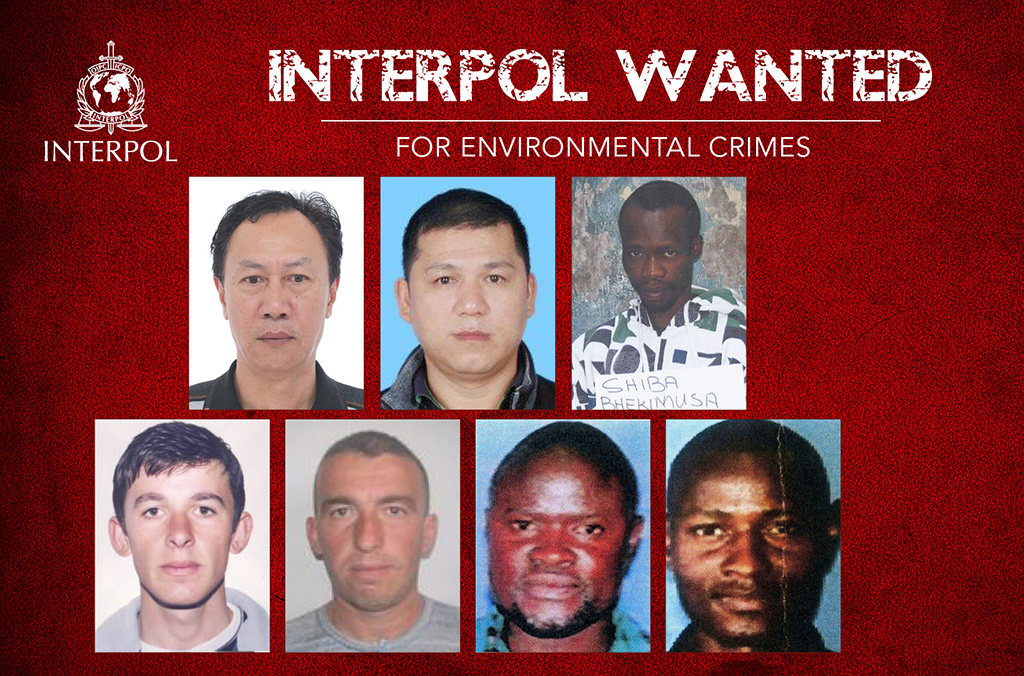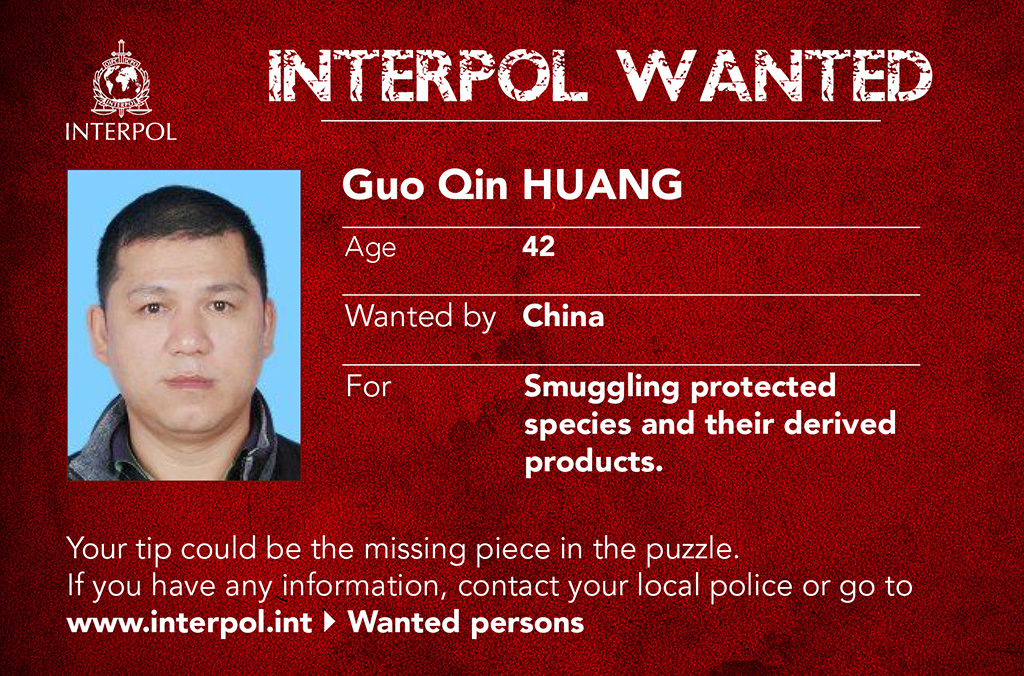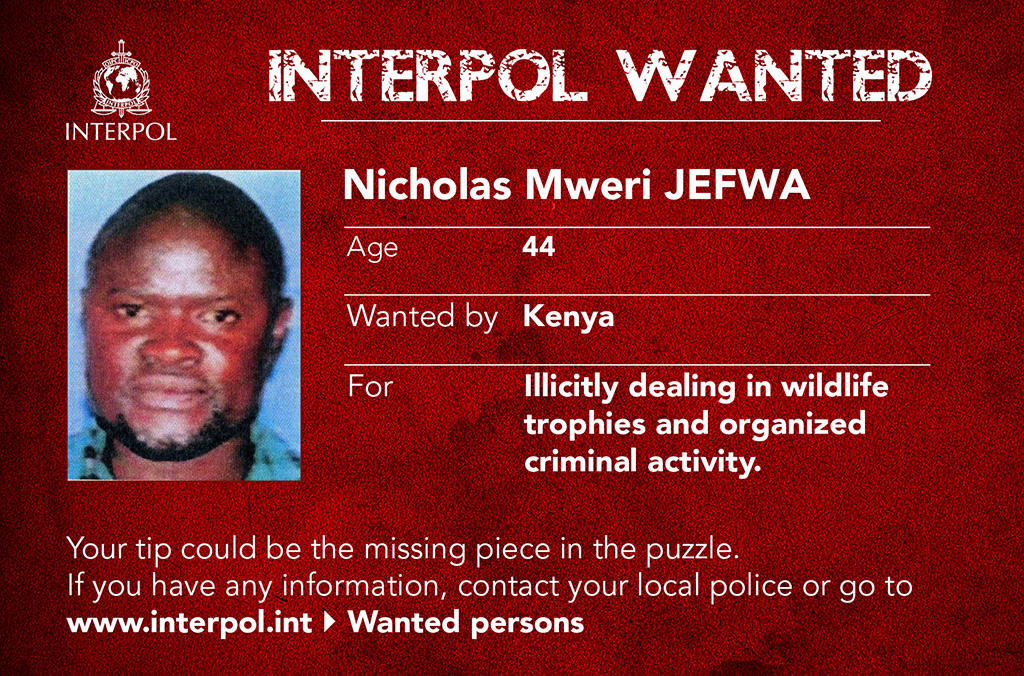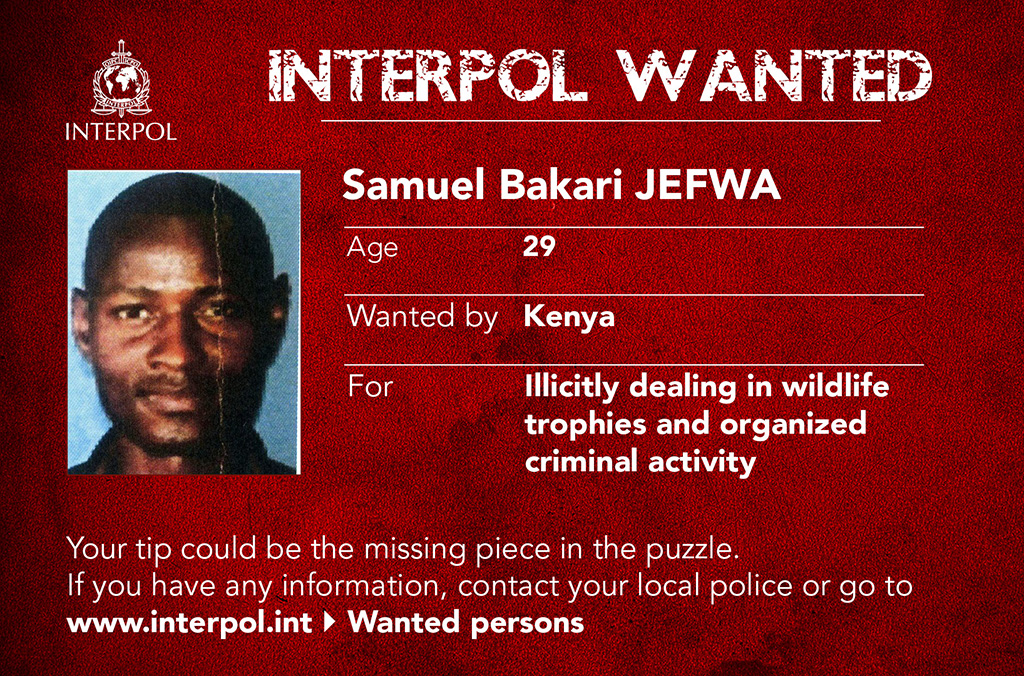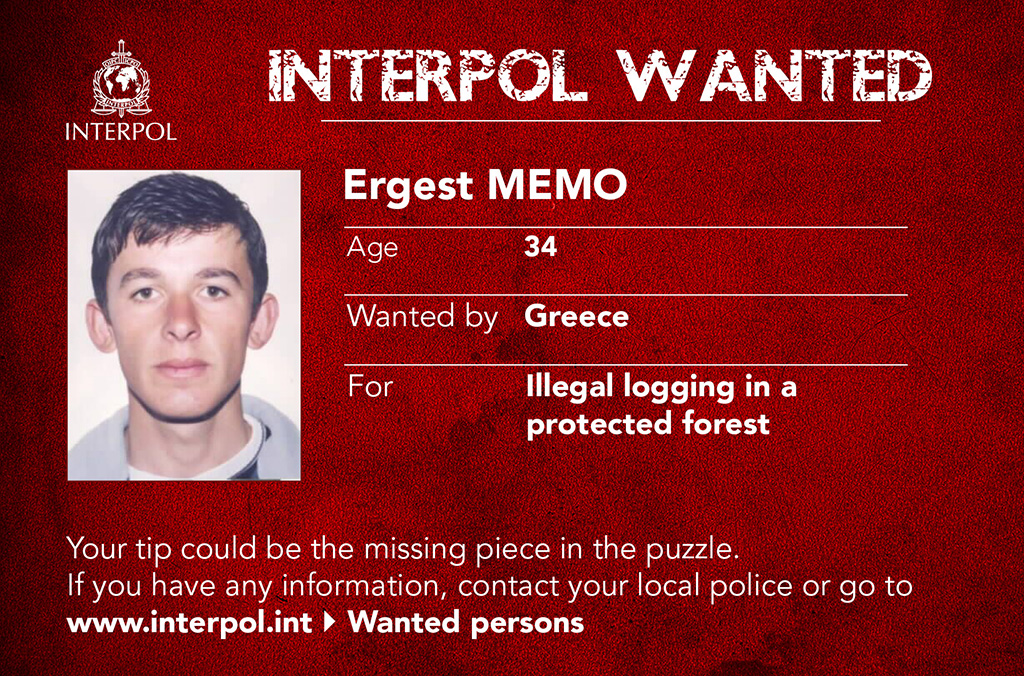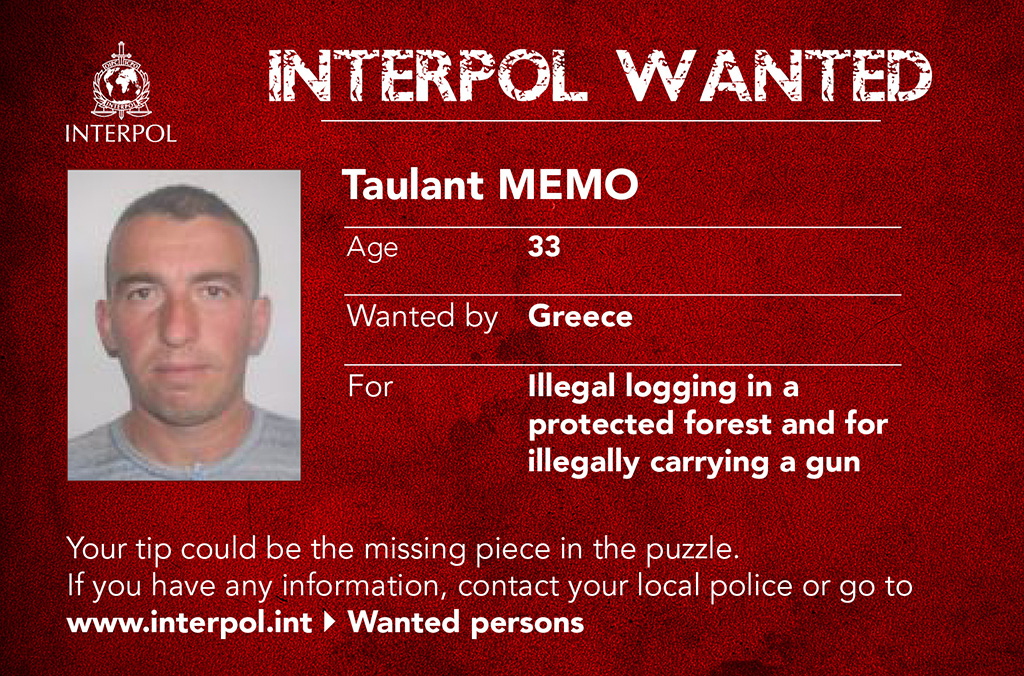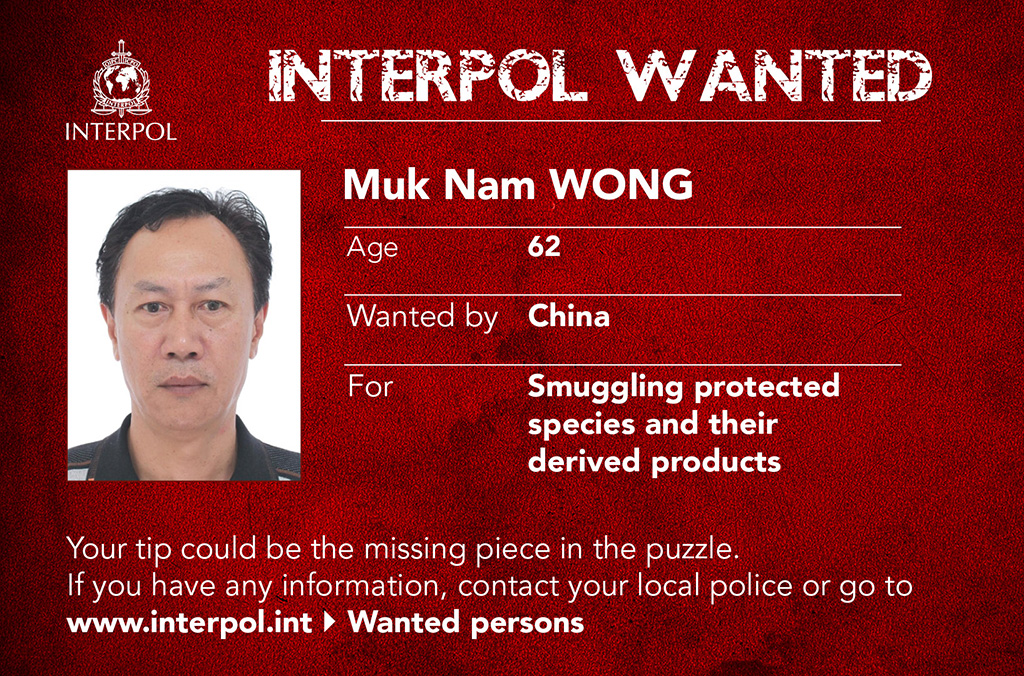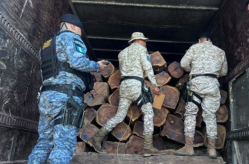LYON, France – INTERPOL is calling for the public’s help in locating seven international fugitives wanted for alleged environmental crimes.
The appeal, which coincides with World Environment Day, is a stark reminder of how organized crime continually seeks to profit from the environment and its natural resources.
The seven individuals are the subject of INTERPOL Red Notices for internationally-wanted persons:
- Guo Qin HUANG, 42, wanted by China for smuggling protected species and their derived products.
- Nicholas Mweri JEFWA, 44, wanted by Kenya for illicitly dealing in wildlife trophies and organized criminal activity.
- Samuel Bakari JEFWA, 29, wanted by Kenya for illicitly dealing in wildlife trophies and organized criminal activity.
- Ergest MEMO, 34, wanted by Greece for illegal logging in a protected forest.
- Taulant MEMO, 33, wanted by Greece for illegal logging in a protected forest and for illegally carrying a gun.
- Bhekumusa Mawillis SHIBA, 39, wanted by Eswatini for wildlife offences.
- Muk Nam WONG, 62, wanted by China for smuggling protected species and their derived products.
Information from the public
The appeal is being undertaken by INTERPOL’s Fugitive Investigative Support (FIS) unit, in collaboration with its Environmental Security programme and Command and Coordination Centre.
Any leads from the public will be passed on to the INTERPOL National Central Bureaus concerned for further action on the ground. Members of the public should not take direct action themselves.
Environmental crime – a global threat
Borders do not restrict environmental crimes, which range from ivory trafficking and overfishing of protected species, to illegal logging and the dumping of hazardous waste.
The same routes used to smuggle wildlife across countries and continents are often used to traffic weapons, drugs and people. Environmental crime often occurs hand in hand with other offences such as passport fraud, corruption, money laundering and even murder.
With environmental criminals estimated to generate between USD 110 and 281 billion in illicit profits each year, in April G7 interior ministers called for stronger efforts to fight environmental crime through increased cooperation and information sharing with INTERPOL.
“Environmental crime is occurring on an industrial scale, with transnational organized crime groups making billions in profits whilst undermining the rule of law and threatening national security,” said INTERPOL Secretary General Jürgen Stock.
“INTERPOL’s public appeal is a reminder that bringing fugitives to justice is a fundamental part of international law enforcement cooperation. Environmental crimes have a global impact, which require a global response,” added the INTERPOL Chief.
A Red Notice is a request to law enforcement worldwide to locate and provisionally arrest a person wanted either by a country or an international tribunal, pending extradition, surrender, or similar legal action.
It is issued for fugitives wanted either for prosecution or to serve a sentence in a member country which has issued an arrest warrant.
Red Notices are published by INTERPOL at the request of a member country, and must comply with INTERPOL’s Constitution and Rules.
Every day, an average of nine INTERPOL Red Notices are cancelled because of the arrest, extradition or surrender of the targeted fugitive.
INTERPOL’s colour-coded range of Notices also includes Blue Notices to collect information on suspects, Purple Notices for information on modus operandi, Green Notices to provide warnings and intelligence on criminals likely to repeat their crimes in other countries, and Yellow Notices to help locate missing persons.





